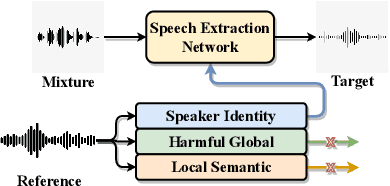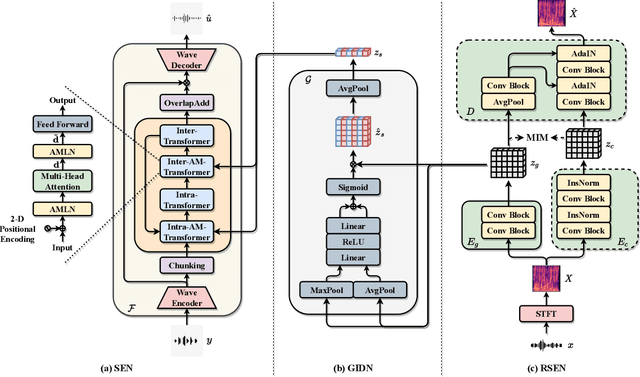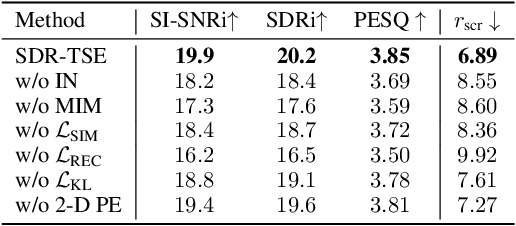Self-Supervised Disentangled Representation Learning for Robust Target Speech Extraction
Paper and Code
Dec 16, 2023



Speech signals are inherently complex as they encompass both global acoustic characteristics and local semantic information. However, in the task of target speech extraction, certain elements of global and local semantic information in the reference speech, which are irrelevant to speaker identity, can lead to speaker confusion within the speech extraction network. To overcome this challenge, we propose a self-supervised disentangled representation learning method. Our approach tackles this issue through a two-phase process, utilizing a reference speech encoding network and a global information disentanglement network to gradually disentangle the speaker identity information from other irrelevant factors. We exclusively employ the disentangled speaker identity information to guide the speech extraction network. Moreover, we introduce the adaptive modulation Transformer to ensure that the acoustic representation of the mixed signal remains undisturbed by the speaker embeddings. This component incorporates speaker embeddings as conditional information, facilitating natural and efficient guidance for the speech extraction network. Experimental results substantiate the effectiveness of our meticulously crafted approach, showcasing a substantial reduction in the likelihood of speaker confusion.
 Add to Chrome
Add to Chrome Add to Firefox
Add to Firefox Add to Edge
Add to Edge